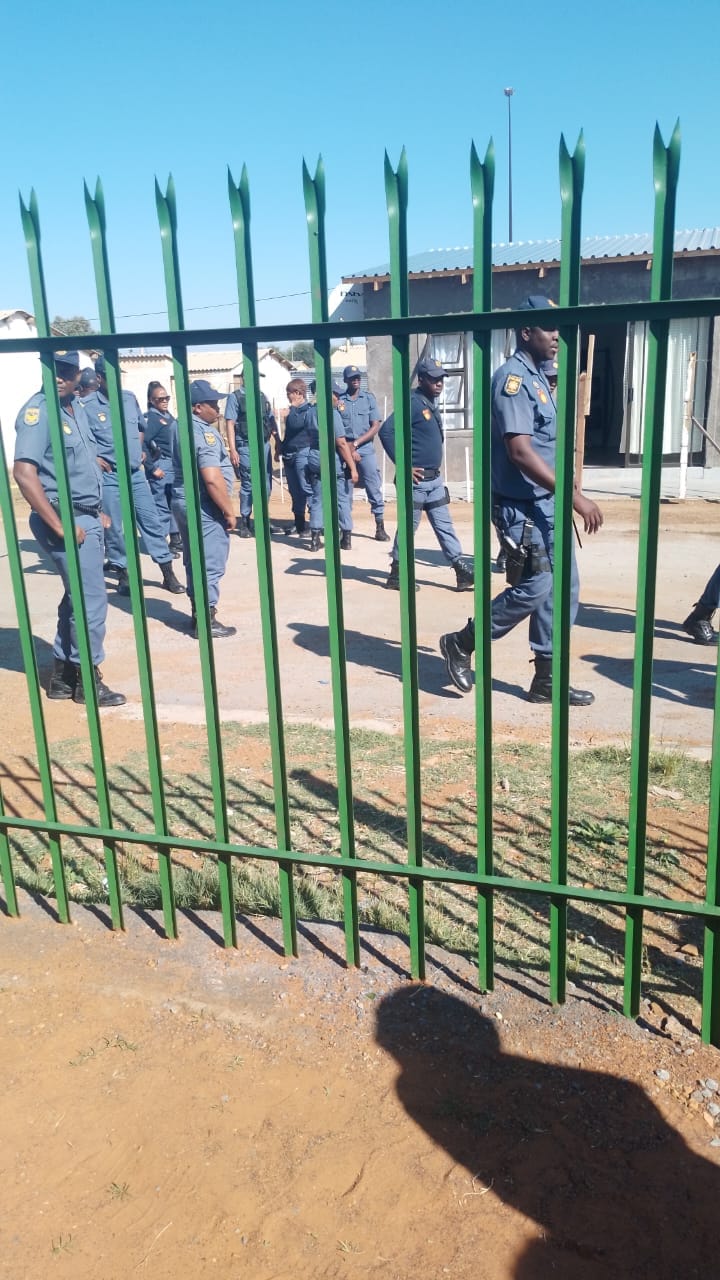A 43-year-old Nigerian national, Prince Muoka Ebuka, was allegedly beaten to death by police officers in South Africa.
Muoka, from Obosi, Anambra State, died on Friday morning, May 17, 2024, in Danielskuil, Northern Cape.
It was gathered that police officers raided the deceased’s residence on the allegation that he was a drug dealer
The Nigerian Union South Africa (NUSA) condemned the killing in a statement issued by its National Publicity Secretary, Habib Miller on Saturday, May 18.
“This incident highlights a disturbing trend of police abuse targeting Nigerians in the Northern Cape,’ the statement read.
READ ALSO: Two Nigerians, Kenyan Arrested For Drug Trafficking In Nairobi
“Since March, there have been similar cases in Kimberley involving drug accusations and police violence. Another Nigerian, Chika Anuino, was killed by police in Springs, Johannesburg, on April 25,” NUSA revealed.
According to the statement, reports from Ebuka’s wife, Joyce, indicated that law enforcement officers stormed their home, forcing her to evacuate to protect their young child from the violence.
Ebuka was then allegedly assaulted and pressured to produce drugs allegedly in his possession. When nothing was found, the officers reportedly took him to a waste dump, accusing him of hiding illegal substances there.
Eyewitnesses alleged serious misconduct, noting that the officers requested pepper spray after exiting Ebuka’s residence.
However, despite using drug detection methods, no drugs were discovered.
READ ALSO: Economic Hardship: Pastor Suspends Collection Of Offerings Church[VIDEO]
The intense interrogation reportedly led to Ebuka’s death, and concerns about the investigation’s integrity have arisen due to the improper preservation of the crime scene
“Reports from Ebuka’s wife, Joyce, paint a harrowing picture of law enforcement officers storming their residence, compelling her to evacuate to shield their young child from witnessing the violence,” NUSA stated.
“Ebuka was then subjected to assault and coerced to produce drugs allegedly in his possession. When their search proved fruitless, they forcibly escorted him to a waste dump, alleging he had concealed illegal substances there.
“Eyewitnesses further allege egregious misconduct, with officers resorting to coercive tactics, including requesting pepper spray after emerging from Mr Ebuka’s residence.
READ ALSO: 15 Most Expensive Nigerian Universities
“Despite employing drug detection methods, no evidence was found, yet the relentless interrogation tragically led to his demise. Moreover, the lack of proper crime scene preservation raises grave doubts about the integrity of the investigation.”
Miller noted that further distress was caused by the police’s refusal to issue a statement or allow the family to open a case docket.
He added that Joyce Ebuka faced intimidation when she tried to report her husband’s death.
NUSA further demanded a thorough, impartial investigation into Prince Ebuka’s killing and the broader issue of police abuse in the Northern Cape.
READ ALSO: Disregard Claim Of Me Bringing Investors To Nigeria – Ngozi Okonjo-Iweala
Meanwhile, the Federal Government says it will into the killing.
The spokesperson of the Nigerians in Diaspora Commission, Abdur-Rahman Balogun, who condemned the death of Ebuka, said it was death was too many.
Balogun called for a thorough investigation into the incident and emphasised that anyone found responsible should be held accountable.
“Condemnable and sad. One death too many. We are calling for an investigation, and anyone found culpable should face the music,” he told the punch.
